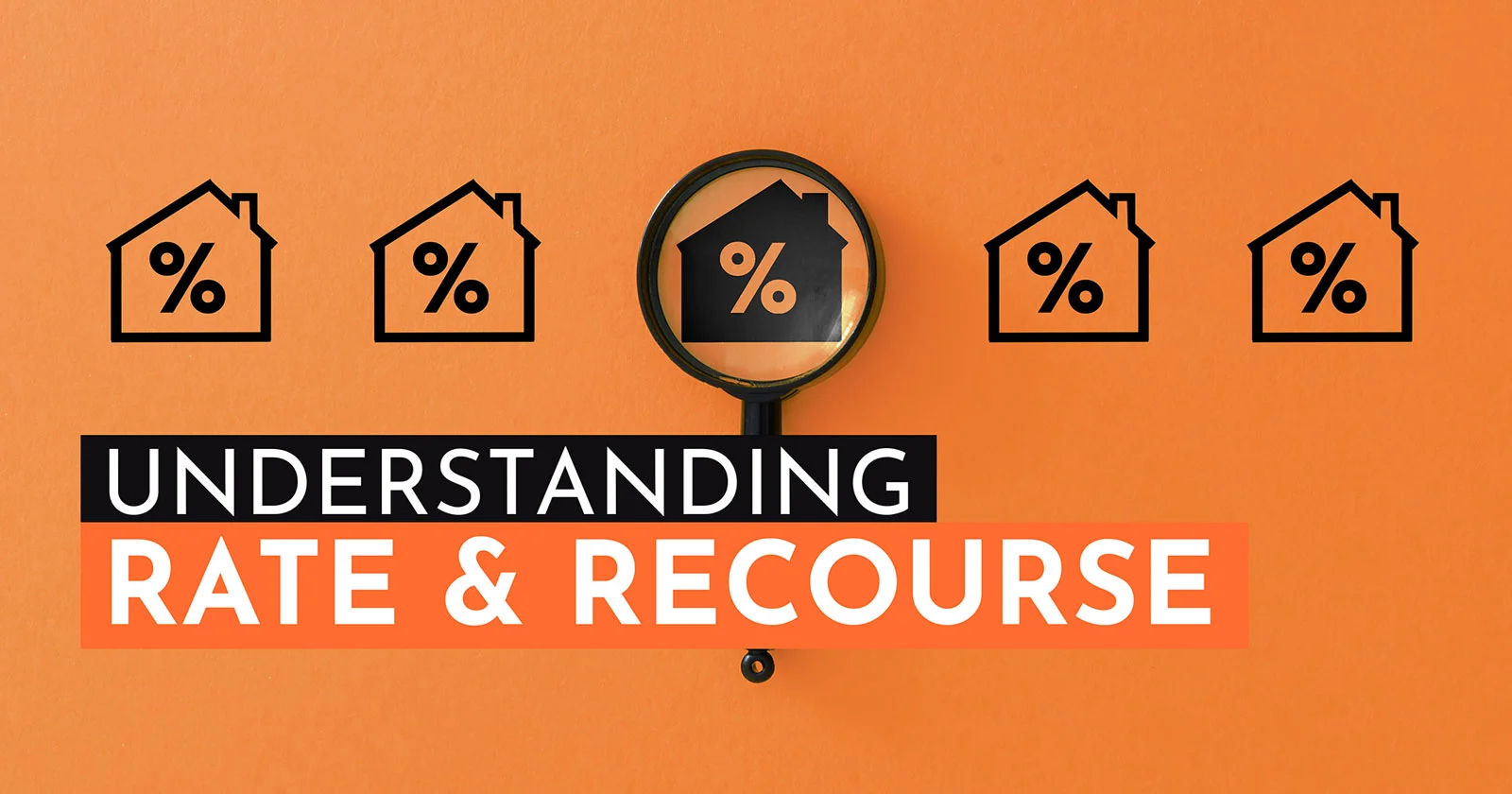Whether you’re a seasoned investor or newcomer to the rental investment market, debt service coverage ratio (DSCR) financing unlocks countless new opportunities. DSCR home loans are specifically designed for long-term real estate investors who lack adequate funding to buy, renovate, market, and rent a property.
Unlike other business loans, such as fix and flip or new construction, DSCR investment loans are asset-based. The down payment for a DSCR loan is determined by the amount of “leverage” a property has. This means newer investors with less leverage can and should expect larger upfront down payments than more experienced investors. While DSCR programs and financing options are a game-changer for scaling portfolios, it’s critical to understand how they work and the costs associated with them.
In this article, we’ll deconstruct DSCR financing, explaining how leverage is determined and how much cash investors actually need to secure a rental property with a DSCR loan.
How Does a DSCR Loan Work?
Traditional loans from traditional lenders require at least two years of steady employment and income to consider a loan applicant. These requirements can be difficult for “self-employed” real estate investors operating as a limited liability company (LLC), who lack the track record or steady income streams to qualify for conventional loans.
DSCR loans for LLC investors eliminate these challenges by taking an asset-based approach to the loan approval process. Rather than harping on personal income or tax returns, DSCR real estate loans use a DSCR loan calculator and formula to determine a property’s potential in the rental market. This formula determines an applicant’s eligibility based on the property’s rental income (either current or potential) and the investment’s principal, interest, taxes, property insurance, and association dues or “PITIA.”
DSCR Formula = Rental Income / Principle + Interest + Taxes + Insurance + Association Dues
This formula determines a property’s DSCR ratio to estimate the profitability of a property (rental income) based on its overall expenses (PITIA). The higher the DSCR ratio, the more attractive the property becomes to investors and lenders. For rental projects, brokers typically look for properties with a 1.05x DSCR ratio or higher.
DSCR Financing Requirements
By taking an asset-based approach to approval processes, DSCR loans give private lenders the flexibility and freedom to say “yes” to borrowers when others can’t. However, lenders are still taking on significant risk, which is why both single and portfolio DSCR loans still have individual-based requirements, including:
- 660 FICO score or above
- 20-35% down payment
- 1.05x DSCR ratio minimum
So, while DSCR financing is a powerful and accessible tool, investors should be prepared to put money down for a loan.
How Much Cash Do Investors Need On Hand for a DSCR Loan?
The down payment for a DSCR loan depends heavily on the Loan-to-Cost (LTC) and Loan-to-Value (LTV) leverage negotiated during loan creation.
Loan-to-Cost
Formula: LTC = Loan Amount / Total Project Costs
LTC compares a loan’s amount to the total cost of the real estate project (purchase, renovations, etc.). The higher the LTC ratio, the riskier the investment for lenders.
Loan-to-Value
Formula: LTV = Loan Amount / Market Value
LTV compares the loan amount to the market value (current or potential) of a property. Similar to LTC, a higher LTV ratio assumes more risk to lenders.
On average, private lenders offer LTC and LTV up to 80% (though sometimes only up to 75%) through DSCR financing programs. However, as the maximum allowance, many rentals may not qualify for these percentages–especially rental investment newcomers and individuals with:
- Lower credit scores
- Minimal reserves
- A lack of tangible property cash flow
For investors with less leverage (experience, reserves, rental income streams), it is best to bring between 23-35% of a property’s purchase price to the table.
DSCR Real Estate Loan Example
For example, let’s say you are looking to purchase a $300,000 rental property. Experienced investors with maximum leverage (good credit score, DSCR ratio, reserves, etc.) and an LTC/LTV of 80% can obtain a loan of up to $240,000 with a down payment of $60,000–not including between $6,000 to $15,000 in closing costs.
Lower leverage individuals who only qualify for a 70% LTC/LTV can obtain a loan for $210,000 with a down payment of $90,000 ($96,000 to $105,000 with closing costs).
DSCR Loan Breakdown for $300,000 Property
Scenario | LTC/LTV | Loan Amount | Down Payment | Estimated Closing Costs | Total Cash to Close |
Max Leverage | 80% | $240,000 | $60,000 | $6,000 – $15,000 | $66,000 – $75,000 |
Lower Leverage | 70% | $210,000 | $90,000 | $6,000 – $15,000 | $96,000 – $105,000 |
Why DSCR Programs are Still a Game Changer for Investors
While $60,000 to $105,000 isn’t just pocket change, DSCR loans still bridge financial gaps and position investors to succeed in the future. So, while bringing real cash to the table can be daunting, especially for new investors, DSCR loans have the potential to make the investment worthwhile.
Why? For starters, DSCR loans:
- Empower investors to expand quickly. Rather than spending $300,000 of cash on a single rental property, investors can leverage DSCR loans to purchase multiple properties for the same amount–equating to more income streams, higher profits, and more tax savings and write-offs!
- Help investors gain control of properties and build equity. By purchasing one or multiple properties using DSCR lending, investors begin to reap the benefits of that property’s appreciation. If a $300,000 property appreciates 3% annually, that’s a $9,000 return year-over-year.
- Are attainable. By taking an asset-based approach to DSCR financing, private lenders have flexibility and speed, unlike traditional lenders, to get you the capital you need to outpace the competition and succeed in today’s real estate rental market.
CIVIC: Your DSCR Financing Partner
When it comes to cost savings and leverage, finding a reliable and flexible capital partner can go a long way. CIVIC has been providing investors of all sizes with the most reliable and flexible long-term DSCR financing options for over a decade.
Our Single Rental & Rental Portfolio loan options provide investors with:
- Flexible terms and approval processes with no W2s, paystubs, or tax returns required
- Up to 80% LTV on purchase and rate-term refinance
- Up to 75% on cash-out refinance options
- SFR, warrantable condos, townhomes, PUD, and 2-4 units eligibility
Whether you are just starting or looking to scale your rental investment portfolio, CIVIC can find the best DSCR financing option for you that aligns with your business goals. CLICK HERE to schedule a FREE consultation today.
Authored by Bianca Montalvo
SEO copywriter and strategist




